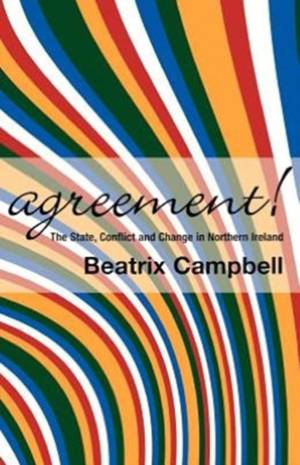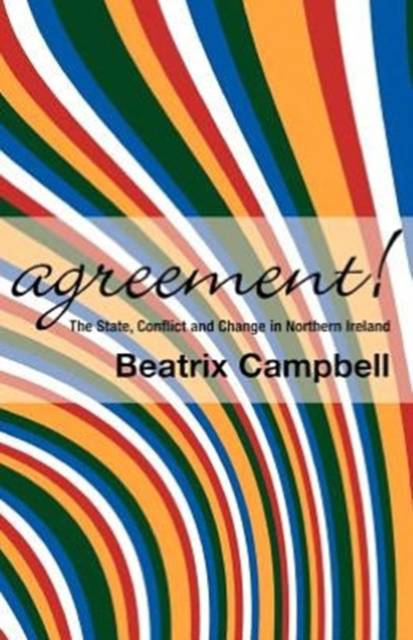
- Retrait en 2 heures
- Assortiment impressionnant
- Paiement sécurisé
- Toujours un magasin près de chez vous
- Retrait gratuit dans votre magasin Club
- 7.000.0000 titres dans notre catalogue
- Payer en toute sécurité
- Toujours un magasin près de chez vous
Agreement!
The State, Conflict and Change in Northern Ireland
Beatrix Campbell
Livre broché | Anglais
25,45 €
+ 50 points
Description
Published ten years after the Good Friday Agreement, this book is about the people, ideas and movements that created it. But it is also about its limits; how the Agreement's promise was frequently betrayed by an establishment that found it difficult to give up its dominance. Campbell documents the forces strongly resisting change, including those inside the police, military and secret services whose refusal to repudiate their long history of collusion prevented them from contributing to peace-making. Gender is woven into the texture of this story - from the men who sought to dominate the streets to the women who fought for the equality agenda. The book has an inspired sense of people making their own history, and is full of their stories. These are people whose contribution was from the grassroots - loyalist ex-combatant Gusty Spence, the PPU's Dawn Purvis, Unison's Inez McCormack, Thomas Donahue of the AFL-CIO, Father Aidan Troy of Holy Cross School, to name only a few. It is on the efforts of people such as these that the success of the new state will continue to depend. 'The spinners of history are rarely the makers of history. The real story of Ireland's journey to peace and justice is murkier, more treacherous and often more inspirational than our political masters would have us believe. Bea Campbell is a great chronicler of our times: humane and politically astute, with a keen understanding of the double dealing, interplay and courage that underpinned the long peace process, which was really won by ordinary men and unsung women in Northern Ireland.' Helena Kennedy 'Outstanding ... an impressive and insightful book. The story of international diplomacy and political deals has been told elsewhere, but this details another story, about the contribution of civil society, the women's movement and a "coalition of the committed" to a unique constitutional moment, and to the means by which the state might reinterpret itself and be changed.' Professor John Morison
Spécifications
Parties prenantes
- Auteur(s) :
- Editeur:
Contenu
- Nombre de pages :
- 290
- Langue:
- Anglais
Caractéristiques
- EAN:
- 9781905007745
- Date de parution :
- 15-05-08
- Format:
- Livre broché
- Format numérique:
- Trade paperback (VS)
- Dimensions :
- 140 mm x 216 mm
- Poids :
- 371 g

Seulement chez Librairie Club
+ 50 points sur votre carte client de Librairie Club
Les avis
Nous publions uniquement les avis qui respectent les conditions requises. Consultez nos conditions pour les avis.





